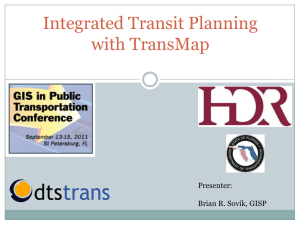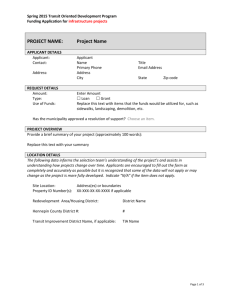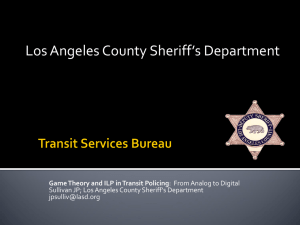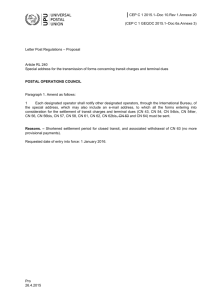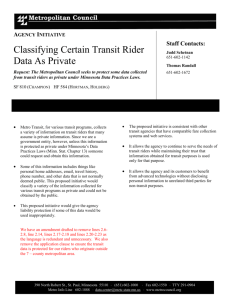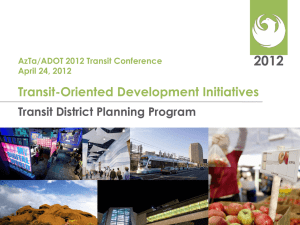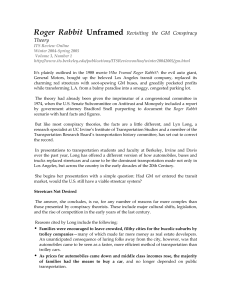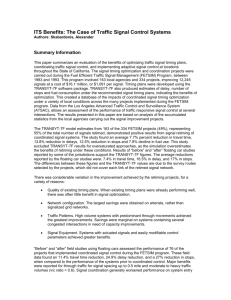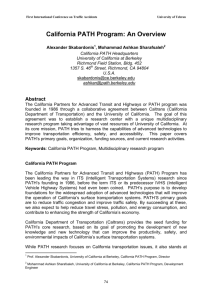Transportation Significance Criteria
advertisement
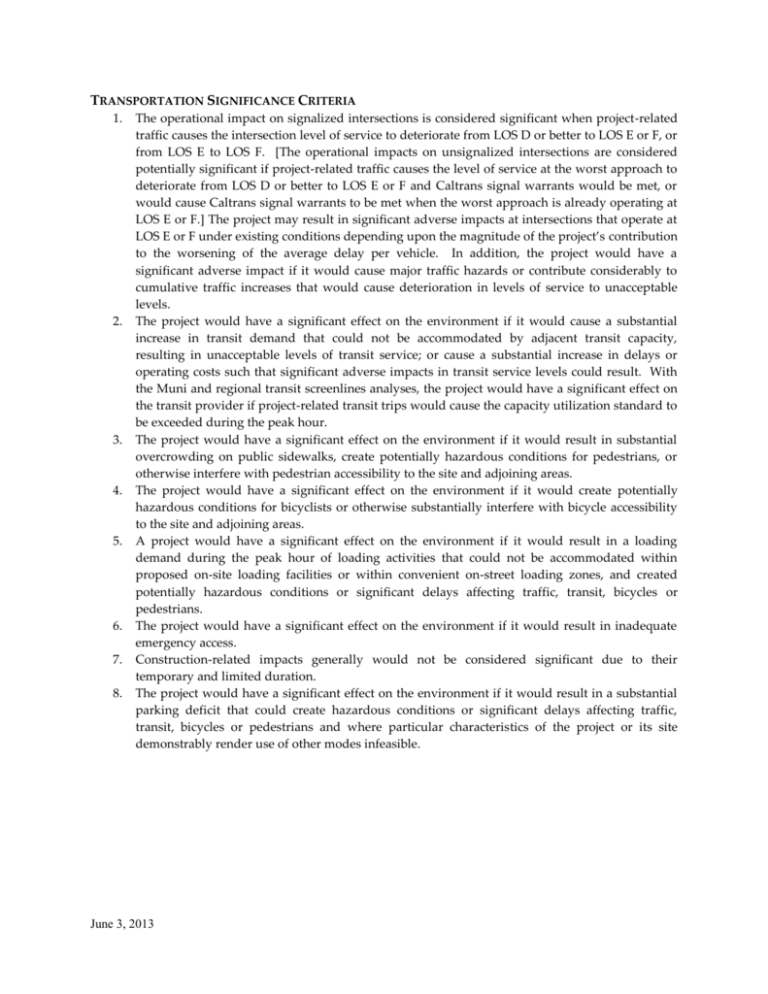
TRANSPORTATION SIGNIFICANCE CRITERIA 1. 2. 3. 4. 5. 6. 7. 8. The operational impact on signalized intersections is considered significant when project-related traffic causes the intersection level of service to deteriorate from LOS D or better to LOS E or F, or from LOS E to LOS F. [The operational impacts on unsignalized intersections are considered potentially significant if project-related traffic causes the level of service at the worst approach to deteriorate from LOS D or better to LOS E or F and Caltrans signal warrants would be met, or would cause Caltrans signal warrants to be met when the worst approach is already operating at LOS E or F.] The project may result in significant adverse impacts at intersections that operate at LOS E or F under existing conditions depending upon the magnitude of the project’s contribution to the worsening of the average delay per vehicle. In addition, the project would have a significant adverse impact if it would cause major traffic hazards or contribute considerably to cumulative traffic increases that would cause deterioration in levels of service to unacceptable levels. The project would have a significant effect on the environment if it would cause a substantial increase in transit demand that could not be accommodated by adjacent transit capacity, resulting in unacceptable levels of transit service; or cause a substantial increase in delays or operating costs such that significant adverse impacts in transit service levels could result. With the Muni and regional transit screenlines analyses, the project would have a significant effect on the transit provider if project-related transit trips would cause the capacity utilization standard to be exceeded during the peak hour. The project would have a significant effect on the environment if it would result in substantial overcrowding on public sidewalks, create potentially hazardous conditions for pedestrians, or otherwise interfere with pedestrian accessibility to the site and adjoining areas. The project would have a significant effect on the environment if it would create potentially hazardous conditions for bicyclists or otherwise substantially interfere with bicycle accessibility to the site and adjoining areas. A project would have a significant effect on the environment if it would result in a loading demand during the peak hour of loading activities that could not be accommodated within proposed on-site loading facilities or within convenient on-street loading zones, and created potentially hazardous conditions or significant delays affecting traffic, transit, bicycles or pedestrians. The project would have a significant effect on the environment if it would result in inadequate emergency access. Construction-related impacts generally would not be considered significant due to their temporary and limited duration. The project would have a significant effect on the environment if it would result in a substantial parking deficit that could create hazardous conditions or significant delays affecting traffic, transit, bicycles or pedestrians and where particular characteristics of the project or its site demonstrably render use of other modes infeasible. June 3, 2013

